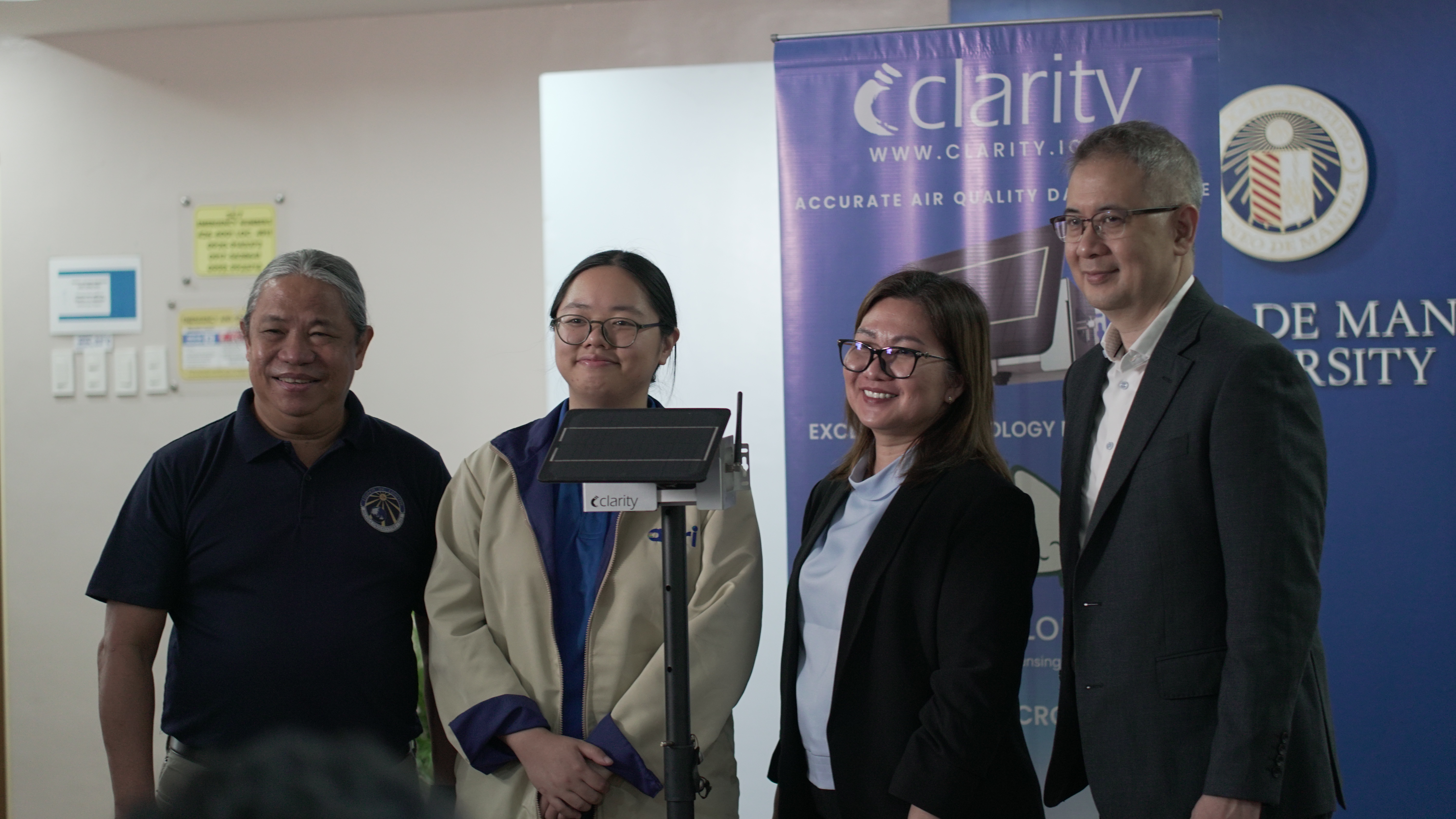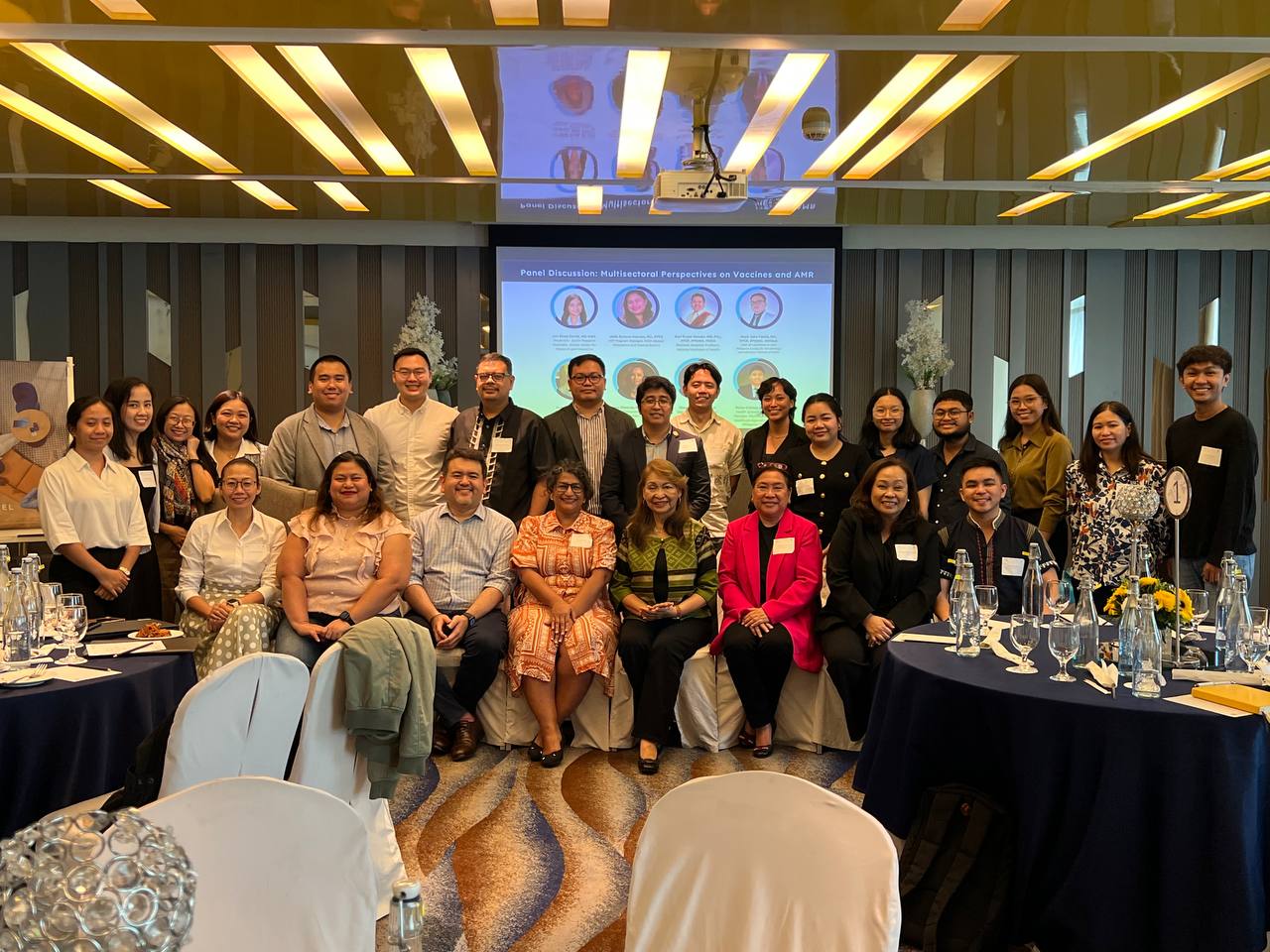
Making Clean Air a Right: The Launch of Breathe Metro Manila
Air pollution causes more premature deaths than malaria, tuberculosis, and HIV/AIDS combined—yet in the Philippines, communities often lack the real-time data needed to protect themselves. This critical gap is what Breathe Metro Manila aims to address.
This groundbreaking initiative, launched through a collaborative effort between Ateneo de Manila University's Business Insights Laboratory for Development (BUILD), the Ateneo Center for Research and Innovation (ACRI), the Manila Observatory, and technology partner Clarity, represents a new frontier in public health advocacy: making air quality visible, understandable, and actionable for every Filipino.
The project made its public debut on August 6, 2025 at a media briefing and roundtable titled "The Urgent Case for Clean Air: Why Real-Time Data Could Save Lives." The event brought together leading scientists, health professionals, and innovators to address a sobering reality—air pollution has quietly become one of the Philippines' most pressing public health emergencies.
Dr. Annelle Raphayette Chua, Head of ACRI's Innovation Flagship Program and Environmental Quality and Health focal at the Ateneo School of Medicine and Public Health (ASMPH), presented compelling evidence linking air quality to disease burden. Her research reveals how polluted air contributes to everything from childhood respiratory infections to cardiovascular disease in adults, making it a leading cause of premature death worldwide.
Dr. Chua emphasized that air pollution is now a leading cause of disease and premature death globally. Yet, the Philippines lacks publicly available air quality data, which limits the ability of health professionals and communities to respond effectively.
This data gap isn't just a technical problem—it's a matter of environmental justice. ACRI's approach focuses on bridging science, medicine, and policy, ensuring that rigorous research translates into practical tools that communities can actually use.
Dr. James Bernard B. Simpas from the Manila Observatory emphasized the importance of sustained, systematic monitoring. "Consistent long-term data is essential for evaluating whether our policies are actually working and developing targeted strategies that address pollution at its source," he noted. This isn't about collecting data for data's sake—it's about building an evidence base for effective intervention.
From BUILD's perspective, Joseph Benjamin R. Ilagan highlighted how academic excellence must connect with real-world impact. "We're linking university expertise with partners across government, business, and civil society," he said. "Our goal is to transform visibility into decisions, and decisions into systems that strengthen community resilience."
The technical backbone of this effort comes through Engineer Ethel Garcia of Clarity, who introduced the advanced monitoring systems being deployed across Metro Manila. Drawing from successful global initiatives like Breathe London, these real-time, localized sensor networks provide the granular, actionable insights needed to guide both policy development and grassroots interventions.
The coalition behind Breathe Metro Manila isn't just collecting data—they're building a movement. Local governments, businesses, schools, and civic organizations are being invited to use this information to shape evidence-based policies and interventions with lasting impact.
For ACRI, this project embodies the institute's core mission: harnessing innovation for the public good. By connecting rigorous evidence with practical application, and translating insights into policy, Breathe Metro Manila works toward a future where clean air becomes not a privilege enjoyed by the few, but a fundamental right guaranteed to every Filipino.
As the sensor network expands and data begins flowing, Breathe Metro Manila promises to transform how the Philippines approaches air quality management. This isn't just about monitoring pollution—it's about empowering communities, informing policy, and ultimately saving lives through the power of accessible, actionable information.
In a country where environmental challenges often seem overwhelming, Breathe Metro Manila offers something invaluable: hope backed by science, and data designed for action
-

The Unseen Link: Vaccines and Antimicrobial Resistance in the Philippine Context
Antimicrobial resistance is already claiming lives, and the global pipeline for new antibiotics is shrinking. In August 2025, experts gathered to explore a critical question: Can vaccines become a frontline weapon against AMR? The science is clear—by preventing infections, vaccines reduce antibiotic use and slow resistance. But translating this into action means confronting data gaps, political barriers, and financing challenges. As one expert noted: "When we vaccinate, we reduce the frequency of these diseases. That means fewer antibiotics—used and misused." With no country in the Global South yet integrating vaccines systematically into AMR strategies, the Philippines has a chance to lead—if stakeholders can move from consensus to action.
-

Advancing vaccine uptake to mitigate antimicrobial resistance (AMR) in low and middle-income countries of South or South-East Asia
This project explores how strengthening vaccine uptake can serve as a key strategy to mitigate antimicrobial resistance (AMR) in the Philippines and across South and South-East Asia. By reducing the burden of vaccine-preventable diseases and the unnecessary use of antibiotics, the study aims to provide actionable recommendations for national and institutional stakeholders to better integrate vaccination initiatives into AMR control efforts, ultimately contributing to stronger, more resilient health systems.
